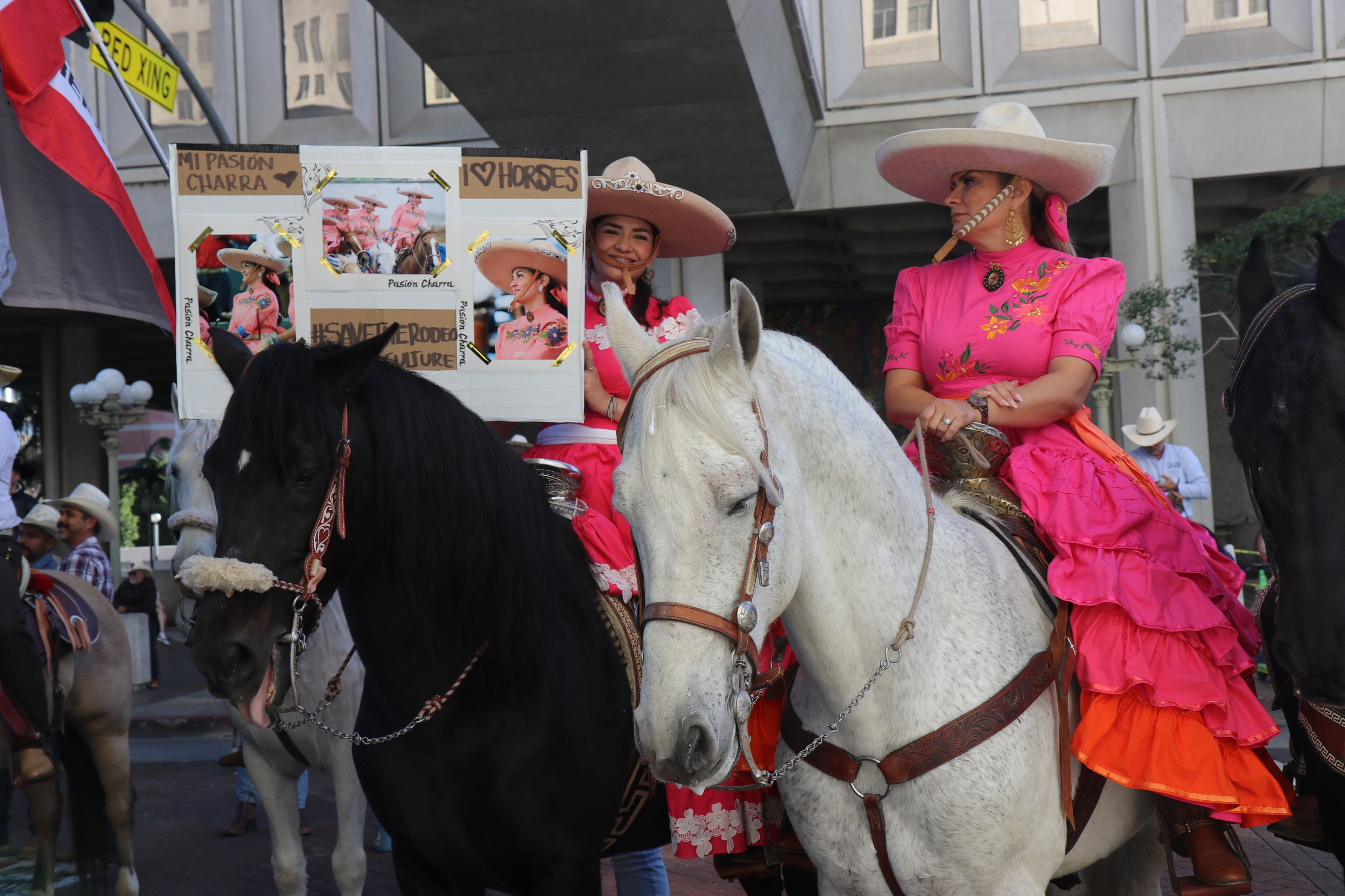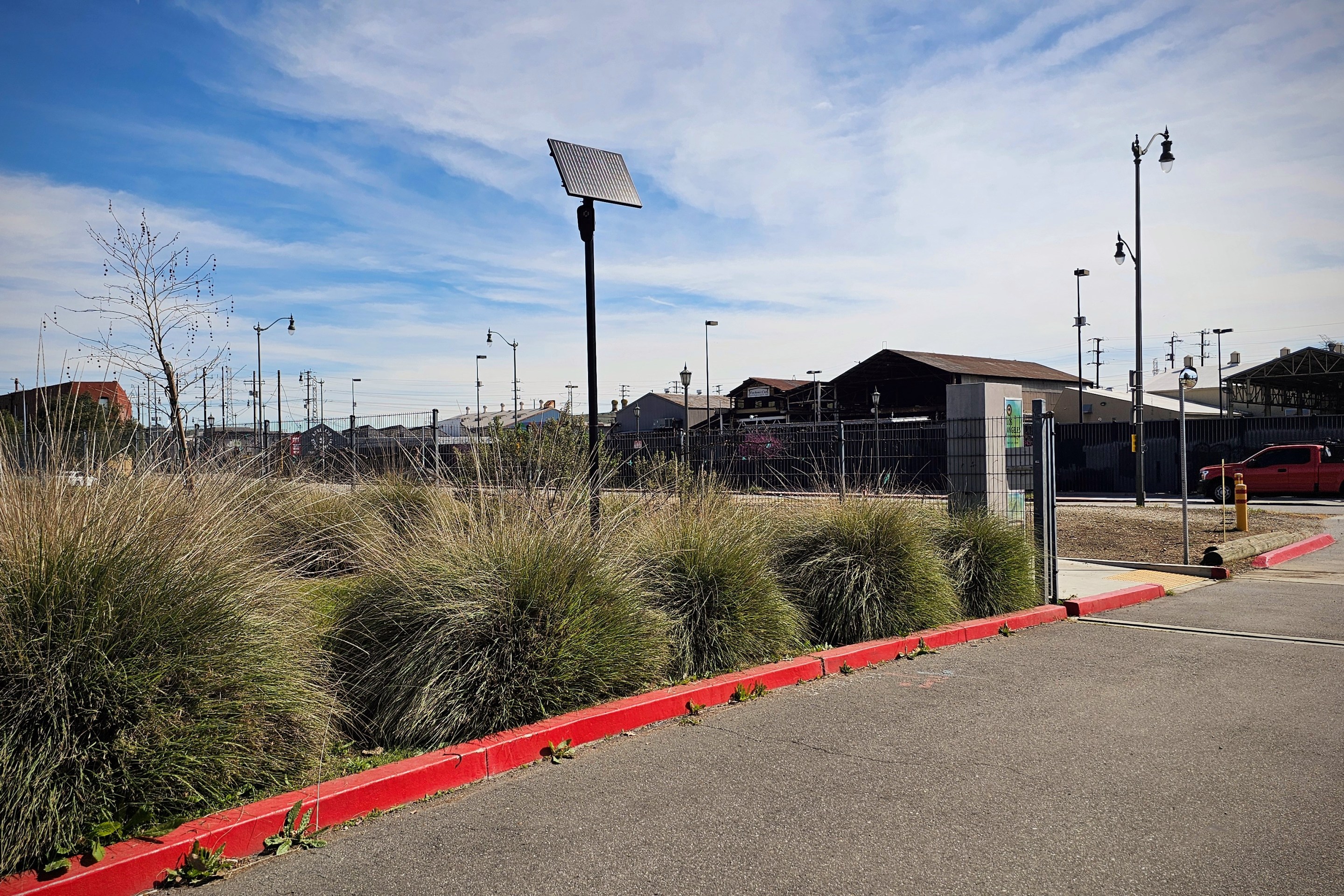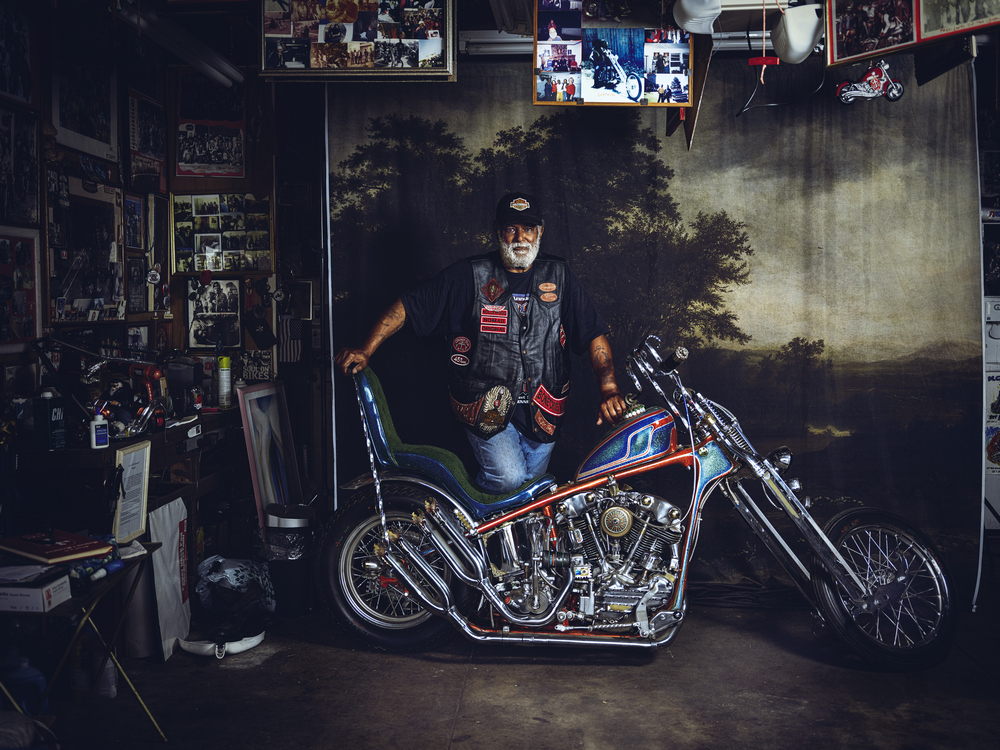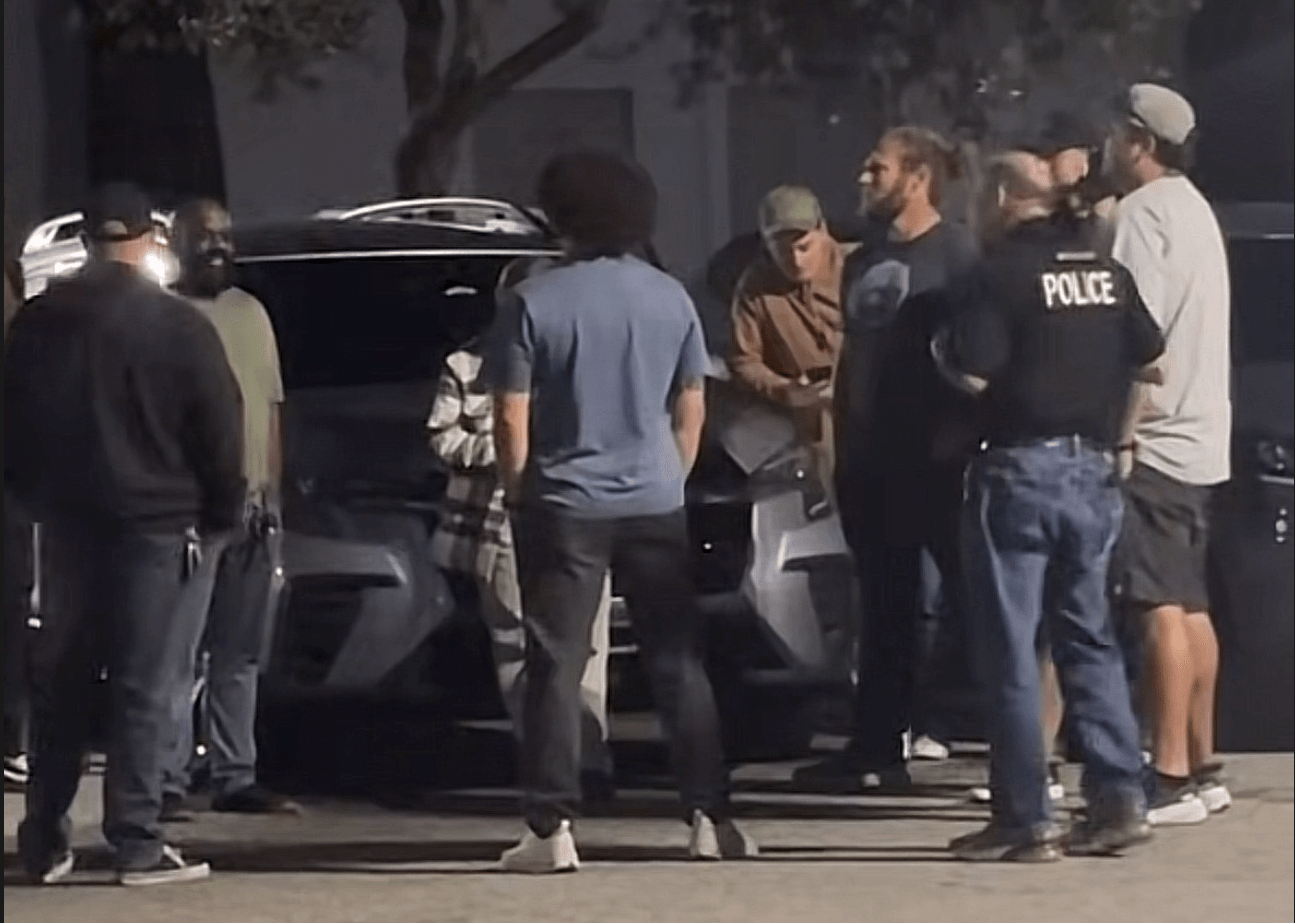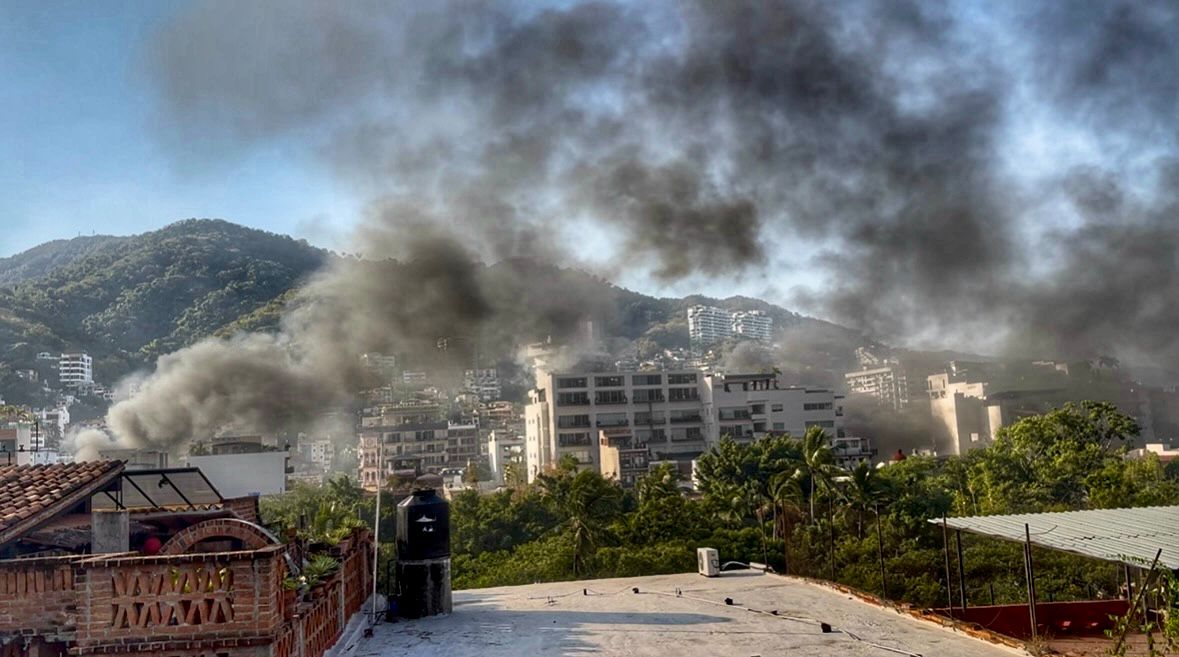Early Tuesday morning, community members from across Los Angeles gathered at City Hall to oppose an ordinance that seeks to ban rodeos within Los Angeles city limits.
Over 100 men and women, both mounted on horses and on foot, filled City Hall’s steps chanting, “My culture matters” and “Save the Rodeos” in Spanish and English, with some making their way inside to the city council meeting.
The ordinance being discussed as part of the agenda was drafted and supported by Councilmember Bob Blumenfield, in which it is claimed that rodeos mistreat animals and partake in inhumane practices.
After hearing about the proposition, L.A.'s rodeo community quickly organized with other groups and organizations to oppose the proposed ban.
Leading up to Tuesday’s council meeting, organizations and support groups made a social media call asking anyone who partakes in rodeo culture or has been immersed in the culture, whether for entertainment or as a working professional, to speak out against the ban.
Members from the Compton Cowboys were present to support, even though the ban wouldn't affect the city of Compton. As well as Horse Man in Action in Sylmar. With a large population of Latinos and rodeo communities, places like Sylmar would be some of the most affected should such an ordinance pass. Even singer Pepe Aguilar’s horses and team attended the council meeting.
Samuel Brown-Vazquez, who works with Avocado Heights Vaqueros and Union de Ranchos, said the use of “animal cruelty” in the ordinance proposal is “plain B.S.”
“The Rodeo Ban proponents would like for you to believe that this ordinance is about animal welfare and ending animal abuse, but there is nothing that can be further from the truth,” he said a day before the council meeting. “Rules and regulation already exist governing rodeo, this is a broad overreach designed to completely eliminate the inter-generational transfer of knowledge and skills that pioneered the equestrian tradition we know and love today.”
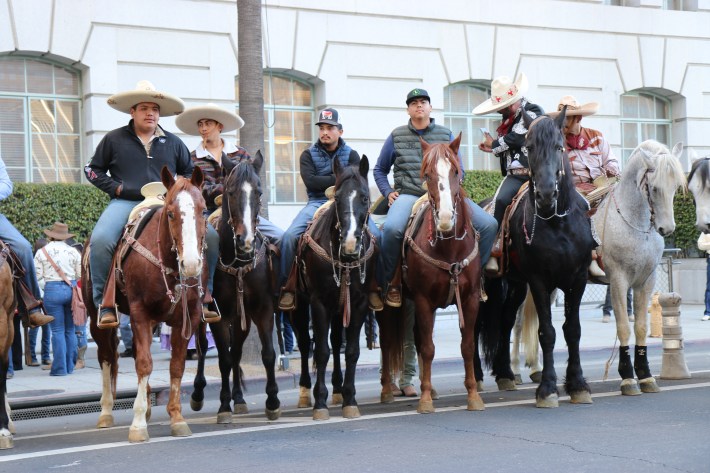
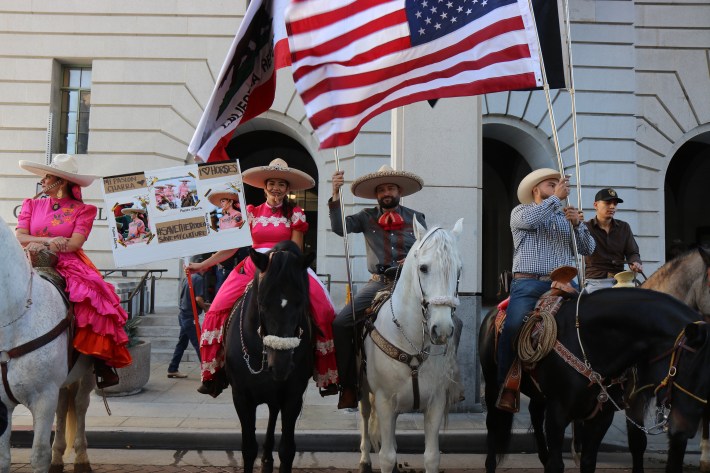
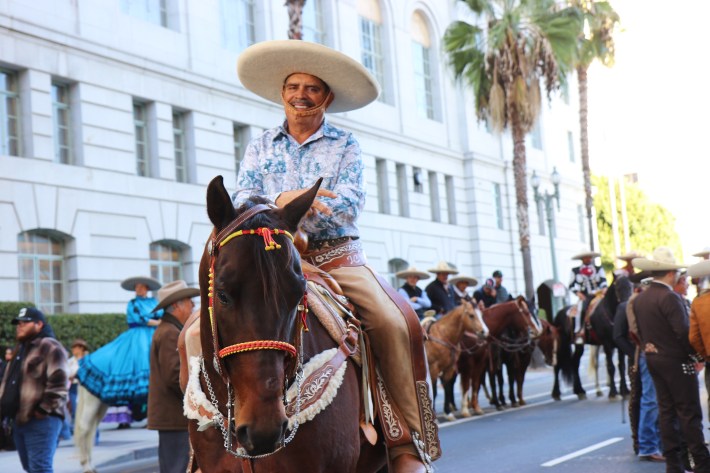
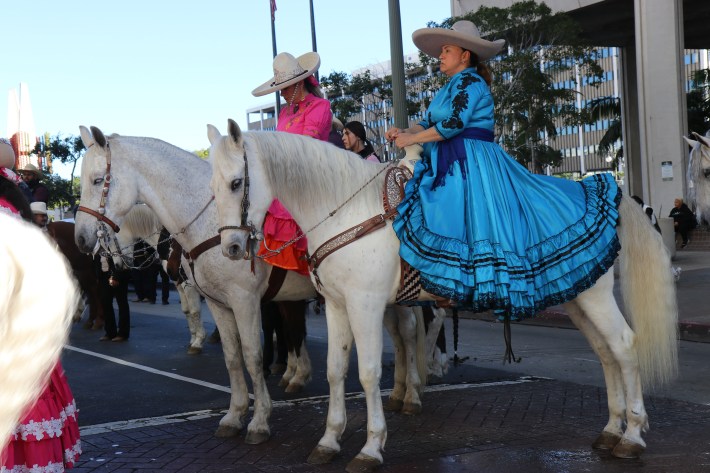
Rancho culture or equestrian culture has been heavily ingrained into Los Angeles since the 1800s and probably even further back, which is why lifetime riders like Reginald T. Dorsey, the grand marshal for the Bill Pickett Invitational Rodeo (BPIR), an African-American national touring rodeo, were shocked to hear that such an idea was being presented.
“It’s important that rodeos continue to exist in the city of L.A. and that we preserve the history of the culture,” he said before making his way across the street to City Hall.
Hector Gomez Mercado, founder of Connecting Compton, was front and center at the council meeting. Before he made his way through the doors of city hall he told L.A. TACO:
“We’re here to vote against the ban. What the council doesn't understand is that by passing this ordinance, not only are you eliminating generations and traditions of rodeo but you are also depriving future generations of getting to experience rodeo,” he continued. “This extremist mentality of animal abuse is ridiculous, there are already regulations in place. It doesn't make sense. We take care of our animals to another level. These animals are pampered, we give them the best food, and have vets on sight, and they have routines because we want them to be happy and healthy.”
By 10 A.M. people on both sides of the ordinance lined up to get their chance at offering public comments. Those for the ban held up signs that read “Rodeos Hurt Animals” and “Cruelty is not entertainment.”
However, those speaking against the rodeo ban were visibly the largest group of the two, with many coming from hours away to support L.A.’s equestrian culture. While people waited in line to enter City Hall, some debated with each other, trying to make the other understand why they were taking a stance for or against the ordinance.
“What’s missing is the education. Having people really go inside, be in the facilities, and see whats going on,” said one attendee we spoke to who came from Sylmar. “Look, I’m not saying all facilities are equal. There's good ones and bad ones and we are against anyone who abuses or hurts animals. But not all are the same.”
Once inside, the community tried their best to explain the importance of rodeo culture and life and how such a ban would impact families, businesses, and even the animals.
Navy Veteran Andre Andrews stepped up to the podium to disclose how riding is more than just what animal rights activists say it is; riding has helped his mental health.
“This ordinance directly affects our mental health, these animals save veterans and first responders' lives and I encourage you to support this process because there's nothing we can do without them,” he pleaded, while cradling his baby in his arms. “I feel like, as a veteran coming back from war, having these animals saved my life and my brothers and sister’s lives, so I hope this ordinance goes away.”
Those who personally take care of the animals that take part in rodeo shows, competitions, and rehabilitation efforts say rodeo is more than just a culture. For them it is all about mobility, and environmental, and mental health justice.
Jorge Alberto Pasillas, an instructor for a charrería school that teaches a little over 100 children, said that interacting with animals helps everyone from children to adults and is a practice that should be embraced rather than something that is banned altogether. Much like Andrews, he has also seen the good that can come from simply interacting with animals.
“This ordinance is based on the ignorance of people who don’t understand the sport and community of rodeos,” he said in Spanish outside City Hall. “At my school, I have kids who have autism, and you can’t begin to imagine how much having contact with the horses has helped them. The parents tell us all the time how much they improve.”
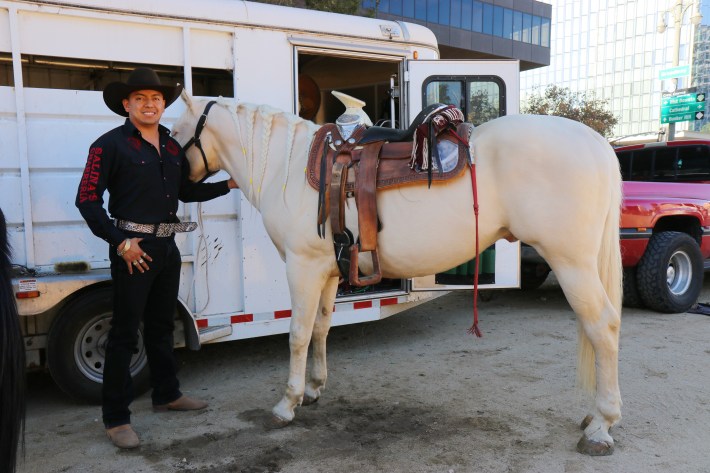
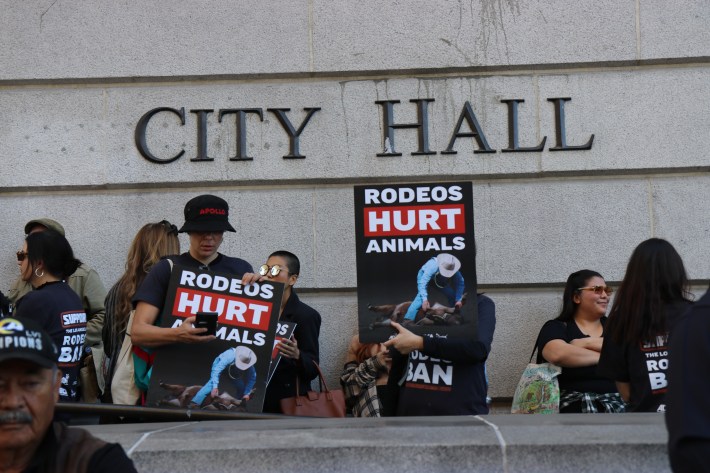
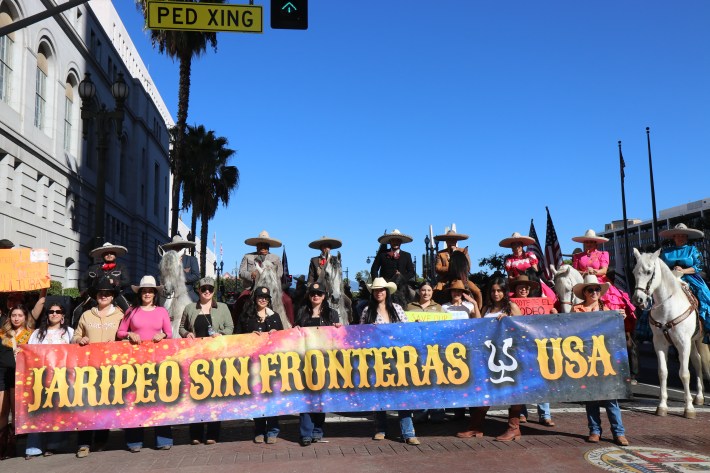
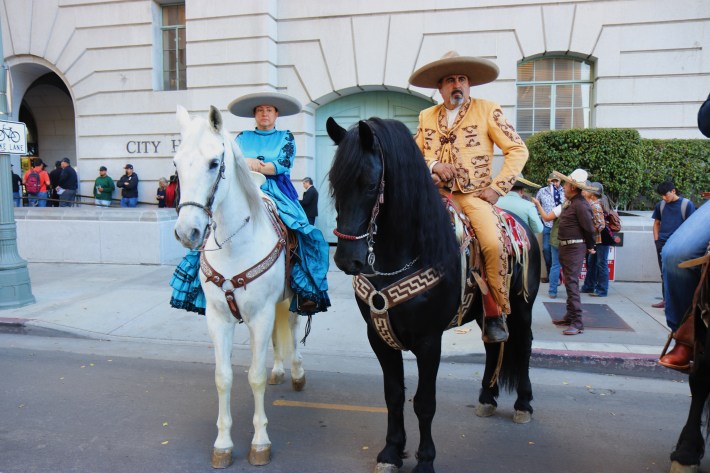
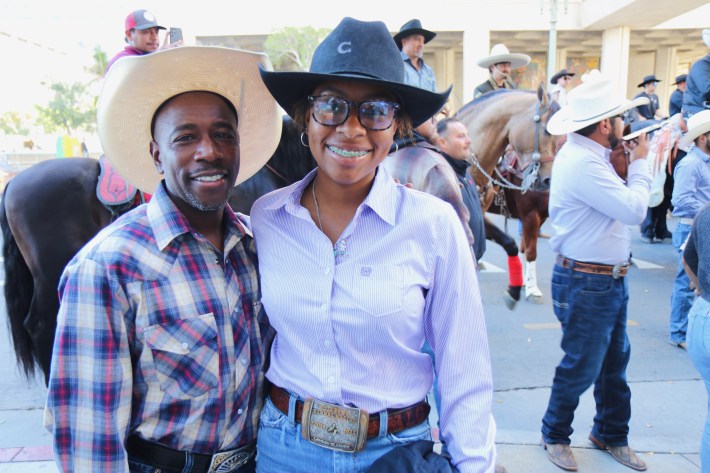
Dihigi Gladney and his 16-year-old daughter, London, also participated on Tuesday, speaking for a stop to the ban. Gladney is no stranger to rodeo life. He grew up in Gardena and said that he started riding horses at a very young age. Spreading and passing down the history and tradition of Black cowboys and riding is extremely important to him.
“We’ve been coming to the Bill Picket Rodeo, this would be the 40th year. I literally have been coming since I was nine. I will be 49 this upcoming July,” he said, waiting to be let into the city council meeting. “This is important. I’m here today because of her (his daughter). Without coming here we’re going to lose our culture."
At the meeting, Councilmember Bob Blumenfield explained that the ordinance was targeting what he called "instruments of torture" that cause the pain to animals. Not the banning of riding.
“There has been a lot of misinformation around our effort stemming from the Professional Bull Riders (PBR) and other groups that make a lot of money off of rodeos. While some have tried to make this a cultural issue, it is not. It’s about animal cruelty; it is about whether Los Angeles should continue to allow the arcane practice of putting animal cruelty on display for entertainment purposes,” Blumenfield told L.A. TACO.
He explained that the ordinance would not prohibit cultural events that involve animals partaking in activities that involve chuck wagon or barrel racing. He said it would also not impact equestrian events like show jumping, dressage, or trail riding.
It will strictly prohibit rodeos that involve animals being pushed to buck unnaturally or get taken down against their will for entertainment purposes. However, some members of the community begged to differ when it came to the motives of the ordinance.
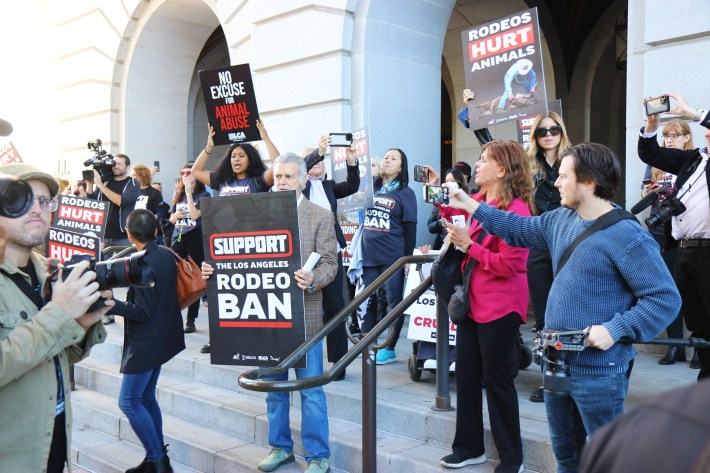
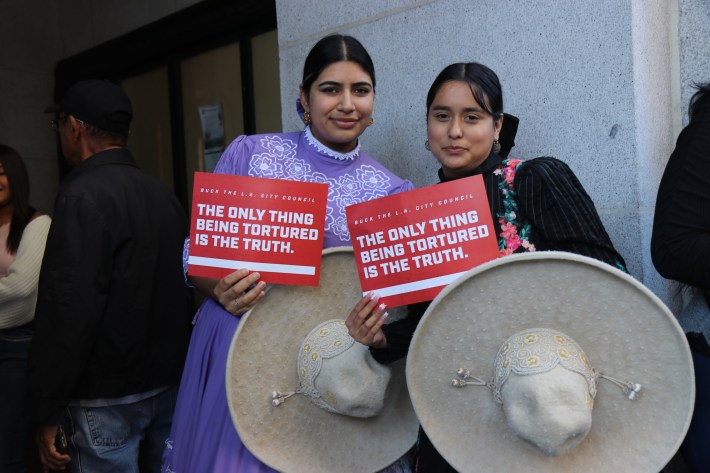
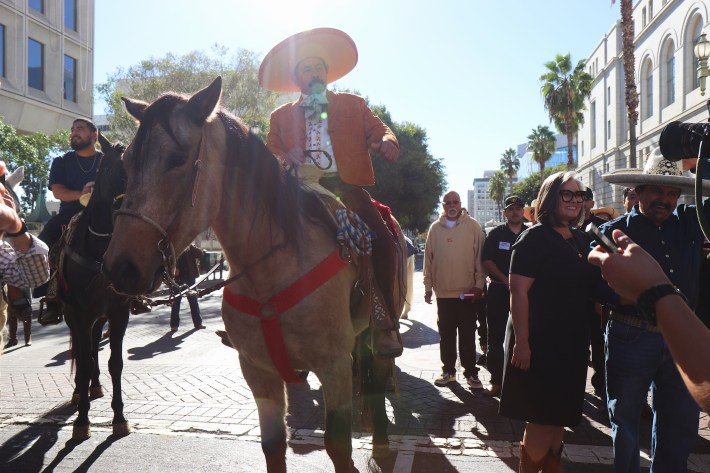
Members like Luis Peralta and Saul Peralta, organizers for Avenue 26 Family Night Market, a food market held at Pico Rivera Sports Arena, also showed up to speak against the rodeo ban. For them, the potential removal of rodeos brought them back to when they (the market) were displaced from their original location on Avenue 26.
“We came to support," Luis said. "It’s extremely crucial for the kids and youth to know where they came from and know that rodeos are part of their history and traditions."
“At the end of the day, it starts with things like this trying to take this away from us, and next thing you know they'll wanna continue taking more away,” added Saul.
After three hours of public comments from both sides, the city council concluded that the ban would not pass. Instead, they asked that the ordinance be sent back to be revised. Now The Neighborhoods and Community Enrichment Committee will deliberate on the proposed ordinance once it receives a draft from the city attorney’s office.
As soon as people outside heard this, the crowd cheered, calling this a small win. Wearing her botas (cowgirl boots), Councilmember Monica Rodriguez, who strongly opposed the ban, walked outside to greet and meet with organizers after the council meeting was over, assuring the community that the fight is far from finished.
“We’re not done, what we did today will show them that we’re not gonna go silently, and we’re going to protect our cultural traditions and make sure that together we protect the animals that we all love,” she said to cheers. “We need to continue to show up to make sure that the policy that is adopted by this city council is impunitive to any community of color that celebrates our beloved animals and culture.”
